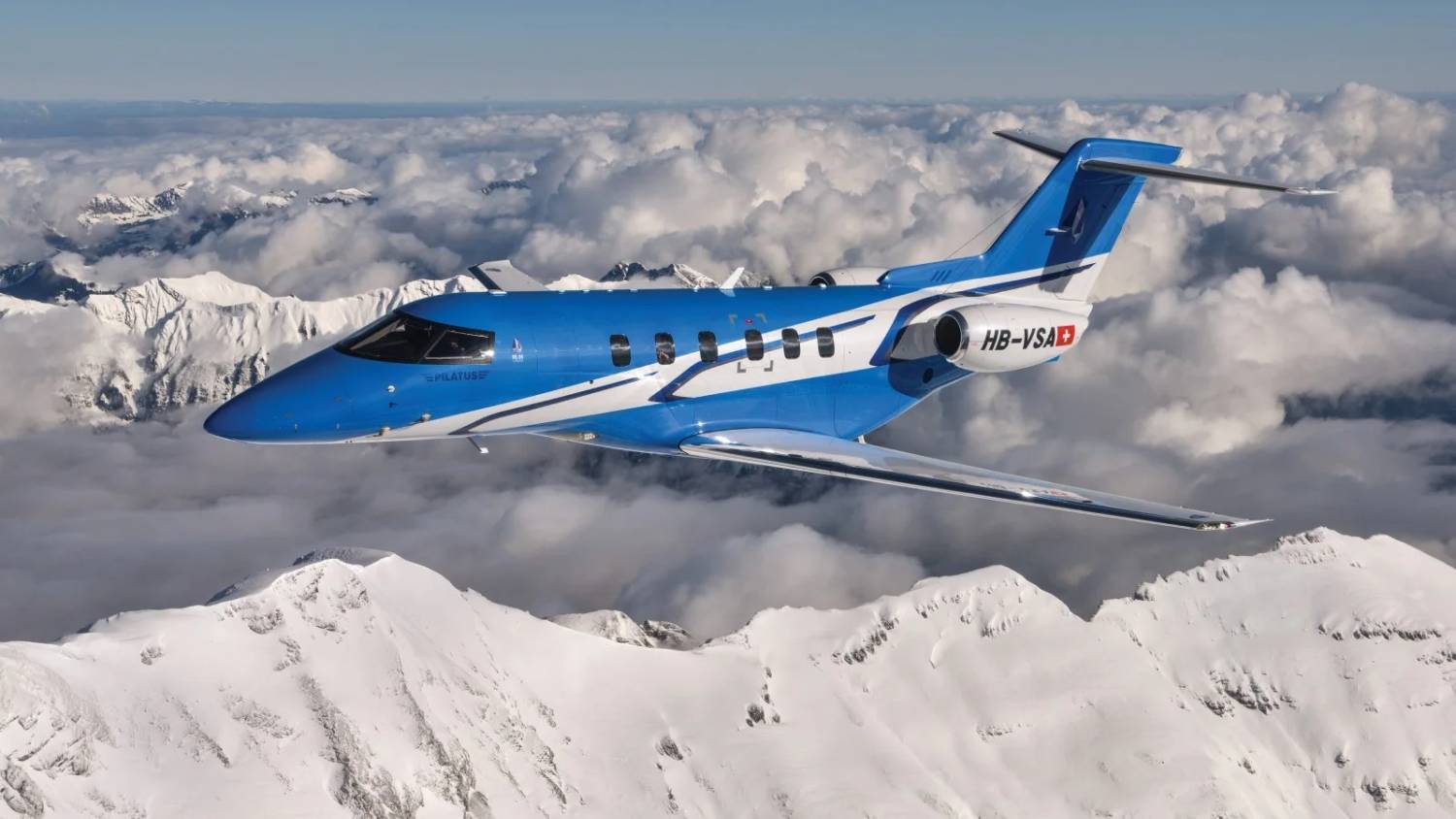
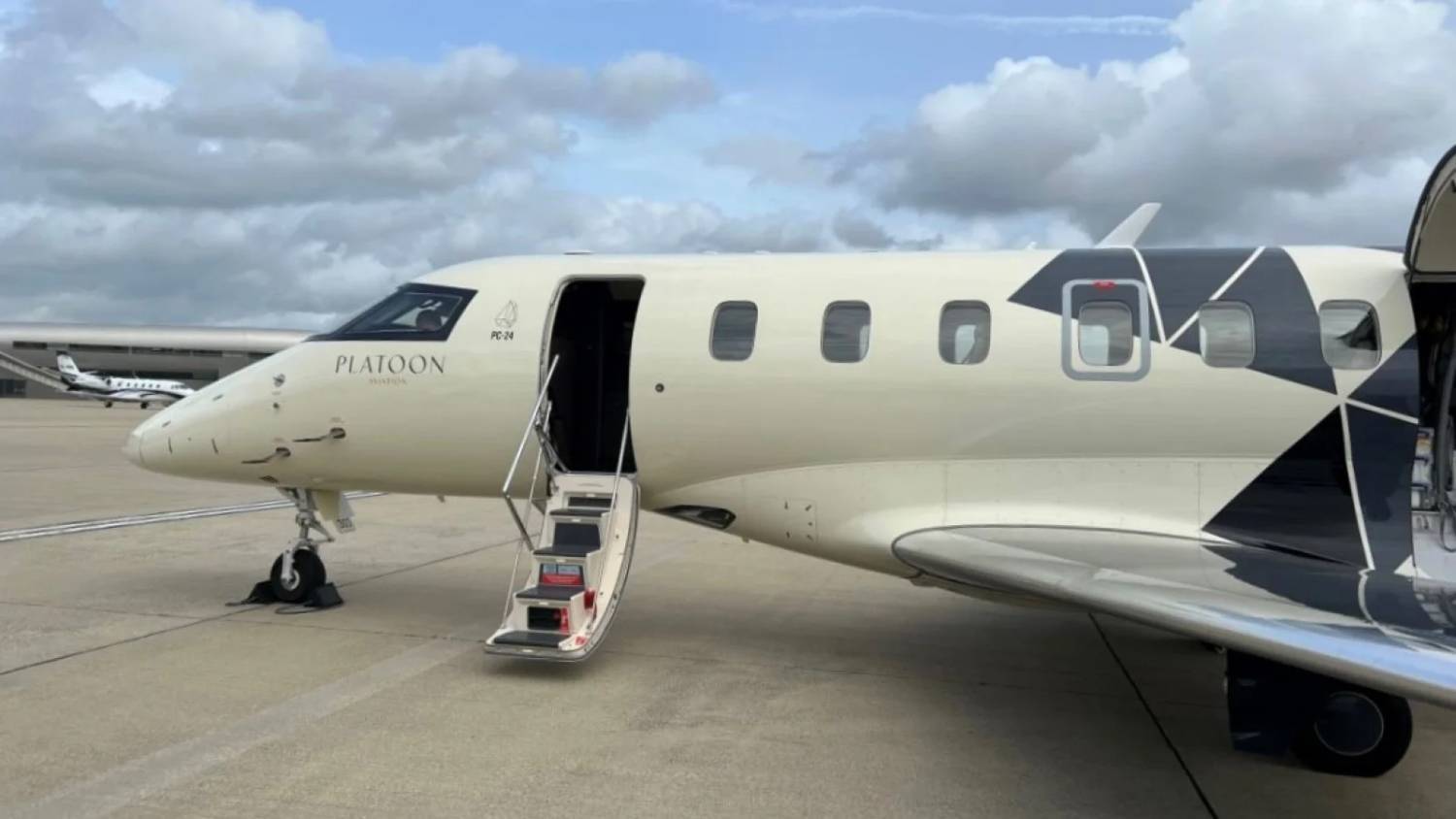
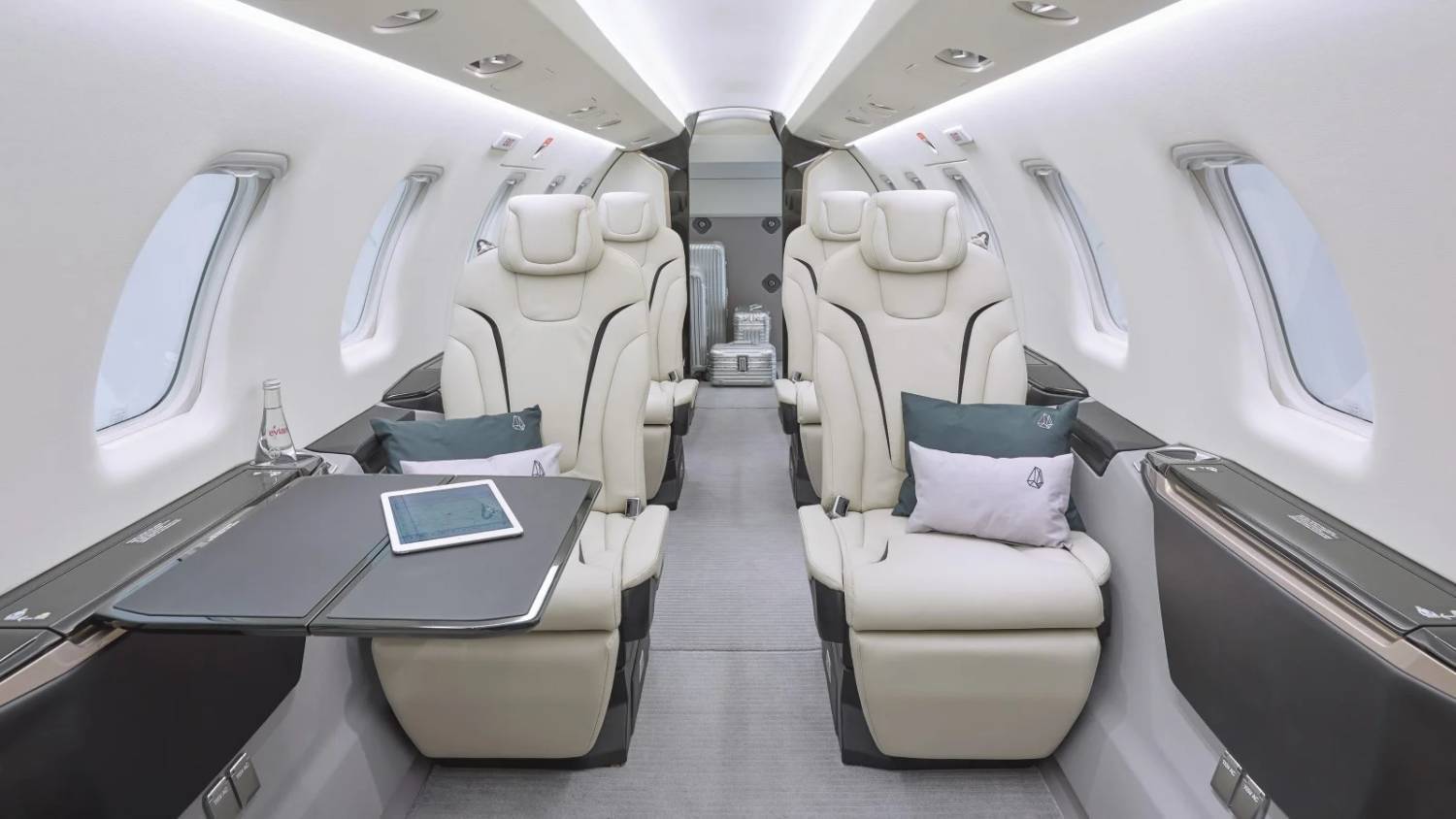
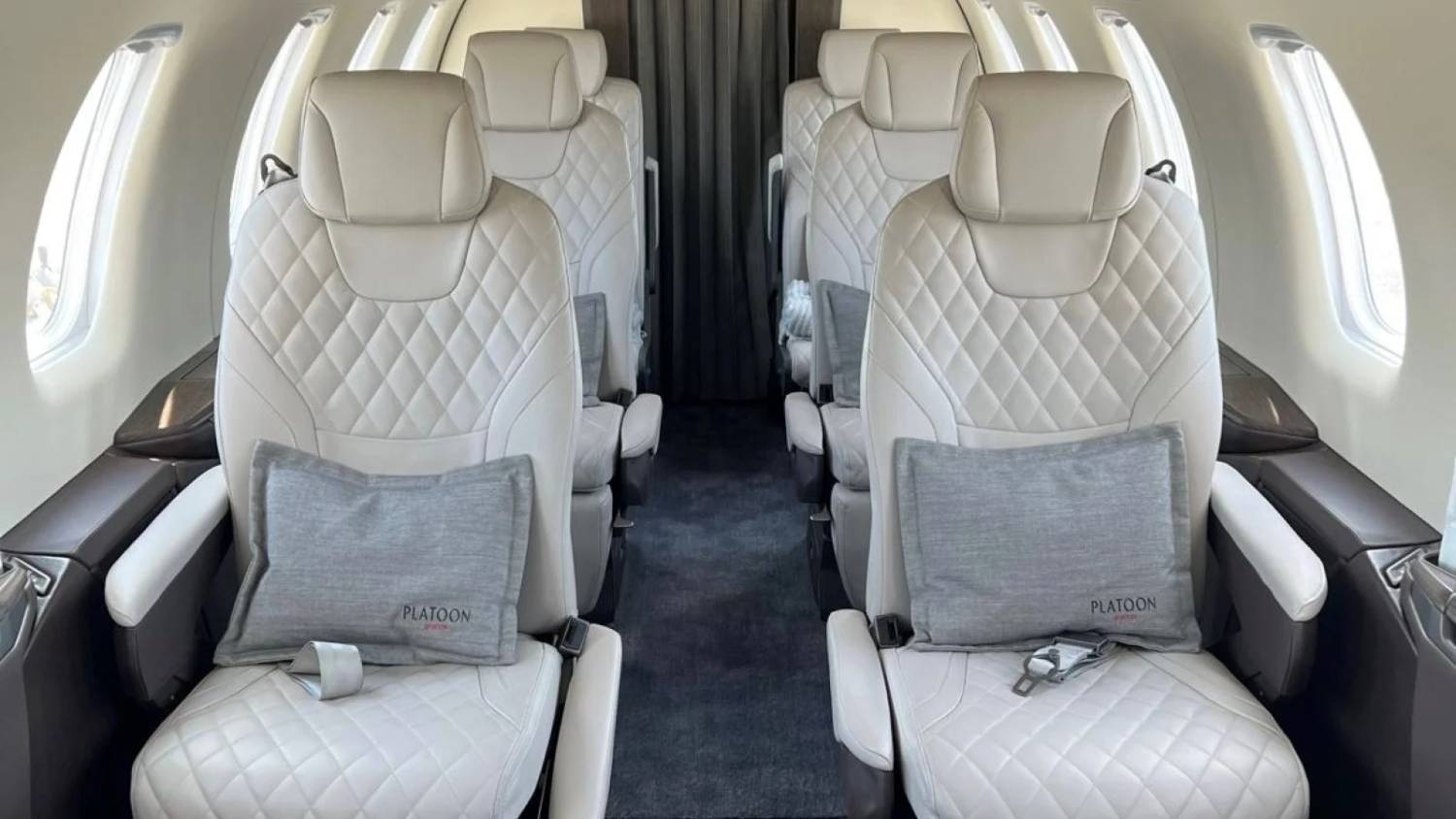
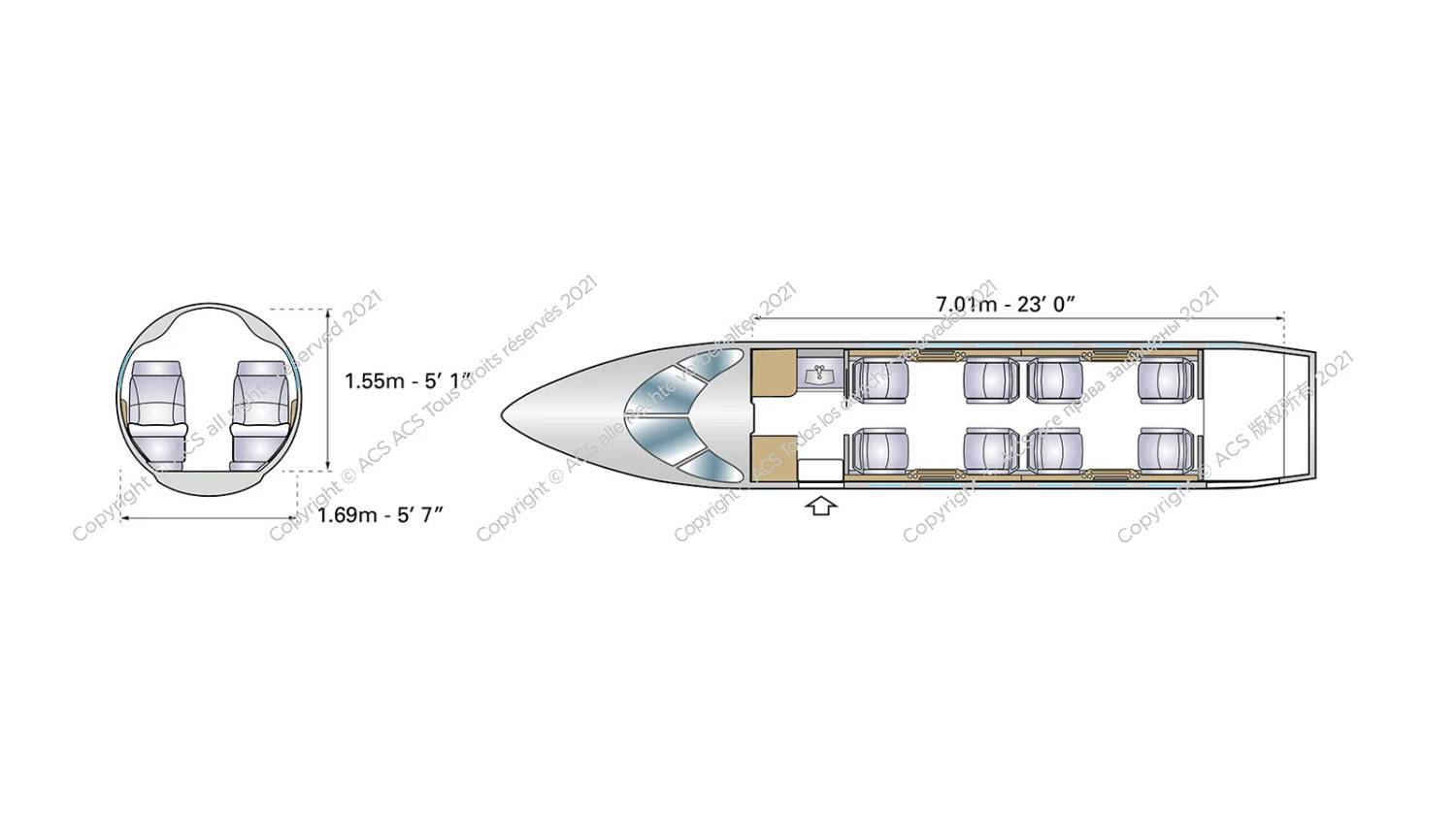
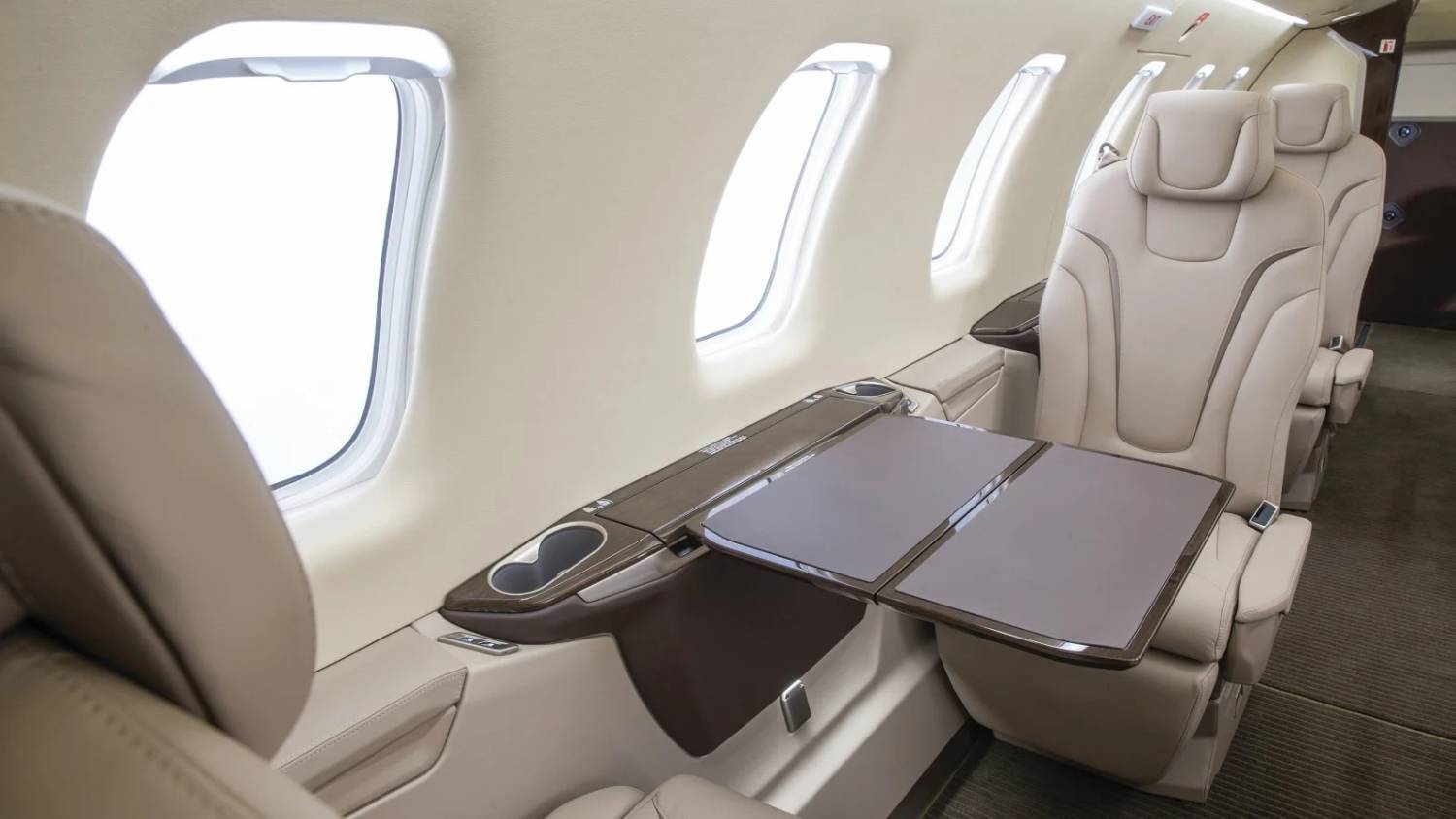
PILATUS PC 24
介紹
- Passengers 8
Combining the versatility of a turboprop with the cabin size of a medium-light jet, Pilatus bills the PC-24 as the only “super versatile jet” on the market.
About this aircraft
- Designed as a development of the successful PC-12, the Pilatus PC-24 was introduced in 2013 and certified in 2017.
- Its cabin typically seats eight people, with room for an additional passenger in the enclosed lavatory if required. Owned aircraft can accommodate a tenth passenger in the cockpit with a single pilot, but this option isn’t available for charters.
- With a range of 3,610 km, the Pilatus PC-24 can comfortably complete non-stop flights from London to Istanbul and New York to Dallas.
- The heated, pressurised baggage compartment can be accessed from the cabin. It holds up to 10 suitcases, which are loaded via the world’s first standard pallet-sized cargo door on a business jet.
- Only 75 Pilatus PC-24s had been built by 2020, meaning the aircraft can be difficult to source for charter at late notice.
Interior design
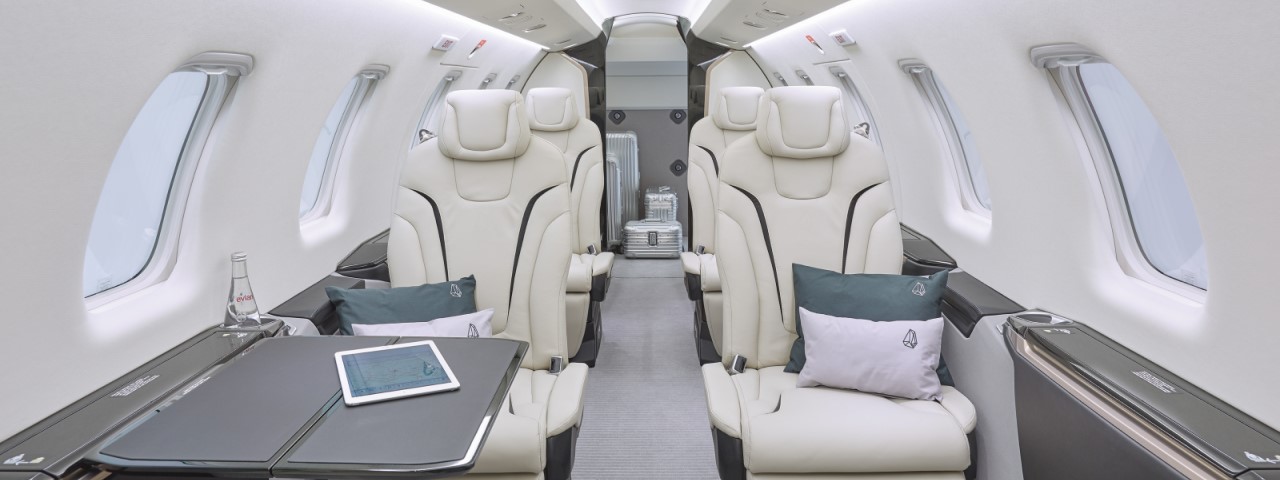
Few business jets of this size offer so much cabin and luggage space with an entirely flat floor. The PC-24’s interior has a movable aft partition for quick-and-easy reconfiguration and seats can be added or removed within minutes. The cabin typically seats eight passengers in either a double club formation or a single club with four forward-facing seats in the rear, while baggage is accessible at all times during the flight.
The BMW-designed passenger space features premium materials like leather and rare hardwood, with 13 large windows and reclining seats that can slide towards the aisle if more room is needed. Two seats facing each other can share an extra-large table.
Below is a typical configuration for a Pilatus PC-24.

Interesting facts to learn before you fly
- The PC-24 has European and US steep approach certification, including for London City Airport's 5.5-degree approach and short runway.
- The cargo compartment divider can be moved to tailor the configuration to passengers’ individual needs.
- As one of the only business jets that can land on unpaved runways, the PC-24 can reach up to 21,000 airports worldwide.
- Despite its larger cabin and lower maximum cruise altitude, the PC-24 typically consumes less fuel than the Learjet 75, which can result in lower charter costs.
Technological features
The PC-24 is a low-wing cantilever cabin monoplane powered by two Williams FJ44-4A turbofans, each mounted in a nacelle on the side of the rear fuselage.
The aircraft’s intuitive and user-friendly cockpit has four 12-inch screens and an inertial reference system to provide reliable and accurate altitude and navigation data. Other features include a synthetic vision system, auto-throttle, graphical flight planning, traffic collision avoidance system, and LPV guidance capability.
History
Pilatus started developing the PC-24 in 2007 as a light business jet that combined the PC-12’s rugged airfield capability with increased range and speed. The model launched in 2013 at EBACE and took its maiden flight in 2015 from Buochs Airport in Switzerland.
The PC-24 received EASA and FAA certification in December 2017 and the first customer aircraft was delivered two months later. It’s been granted European and US steep approach certification, including for London City airport's 5.5-degree approach and short runway, plus dirt and gravel runway operations.
Manufacturer
Swiss aerospace manufacturer Pilatus was established in 1939 to carry out maintenance and repairs for the country’s air force. They started building new aircraft three years later, beginning with the SB-2 Pelikan for use in mountain regions like the Alps.
The subsequent P-2 and P-3 military planes were used by the Swiss Air Force for fighter pilot training, but the real breakthrough came with the popular PC-6 followed by the PC-9. In 1987, Pilatus started developing a single-engine turboprop for up to 12 passengers or freight.
The company delivered its 1,000th PC-12 in July 2010. The flagship PC-24 followed, based on customer feedback requesting increased range and speed alongside the PC-12's short-runway capabilities.
Cost
Depending on factors like age and condition, the price of a used Pilatus PC-24 ranges from $8.5 to $9.5 million (USD), while a new aircraft can cost up to $11.2 million.
Charter rates
Charter rates for the Pilatus PC-24 vary depending on the length of your journey and the airports you’re flying in and out of.
If you’d like to charter a Pilatus PC-24,
for a quote today. For information on other charter options, browse our list of available private aircraft.
Wet lease rates
ACMI (Aircraft, Crew, Maintenance, Insurance) wet lease rates for the Pilatus PC-24 vary depending on the age of the aircraft, lease term length, number of guaranteed block hours and average cycle ratio. Contact us for a personalised quote.
Key Details
•Aircraft Type: Super Light Jet
•Passengers: Up to 8
•Cruise Speed: 815 KM/H (506 MPH)
•Range: 3610 KM (2243 Miles)
Specifications:
•Luggage Space: 90 ft³
•Enclosed Lavatory: Yes
•Flight Attendant: Yes
•Pressurised Cabin: Yes
條款及細則
Terms and Conditions for Private Aircraft Charter
1.Cancellation and Refund Policy
Once the booking is confirmed, all orders are non-cancellable and non-refundable. Please ensure all travel arrangements are carefully reviewed before making a reservation.
2.Flight Schedule Changes
Requests to change flight times or destinations must be submitted at least 48 hours in advance and are subject to aircraft and crew availability. Changes may incur additional charges.
3.Flight Delays and Cancellations
In the event of delays or cancellations caused by weather, technical issues, or other force majeure events, we will make every effort to reschedule the flight but will not be liable for any additional costs or compensation.
4.Crew Arrangements
All flights are operated by professional crew members. Crew assignments are determined by the company and cannot be changed or adjusted based on passenger requests.
5.Baggage Restrictions
Each aircraft has specific baggage weight and size limits. Please confirm baggage requirements at the time of booking. Excess baggage may incur additional charges or be refused for transport.
6.Passenger Safety and Conduct
All passengers must comply with the instructions of the crew. The company reserves the right to refuse service to passengers who violate safety regulations or disrupt the experience of others.
7.Flight Time and Overtime Charges
If the flight exceeds the scheduled duration, additional charges may apply. These charges will be calculated based on the aircraft type and the length of the delay.
8.Force Majeure
In the event of natural disasters, political unrest, or other force majeure events that prevent the flight from operating as scheduled, we will make every effort to reschedule the flight but will not be responsible for additional costs or liabilities.

